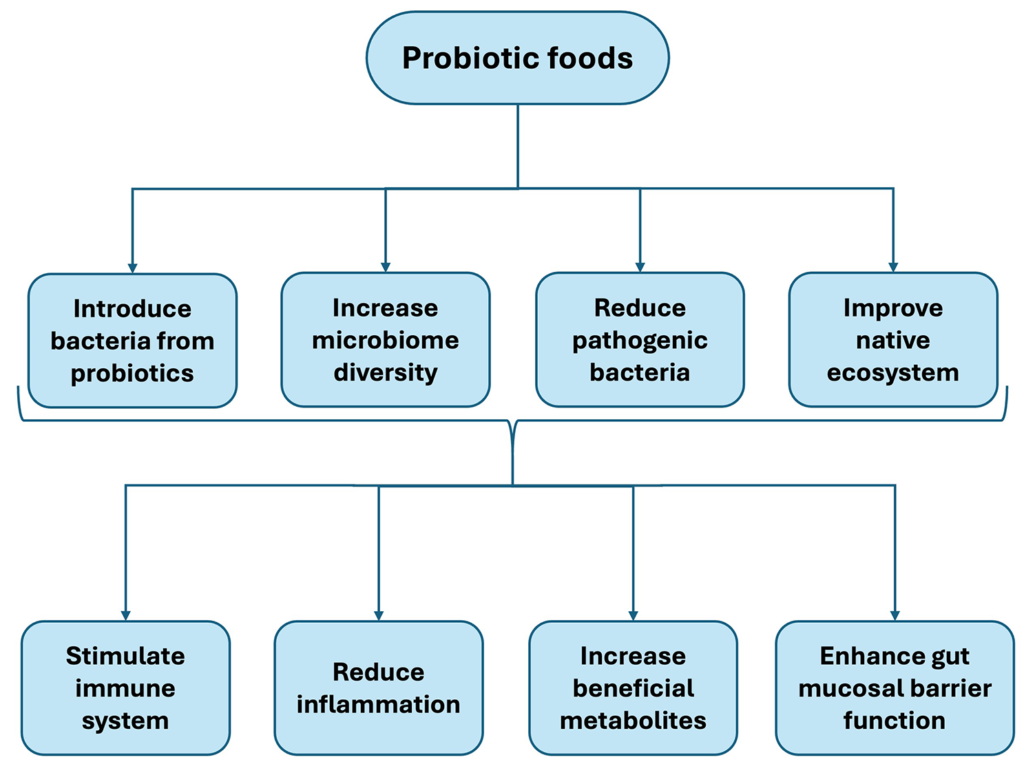The gut microbiome is a key factor responsible for immunity and health. Dysbiosis (i.e. harmful changes in the taxonomic composition and metabolic function of the gut microbiome) has widespread consequences for human health. Imbalances in the gut microbiome can damage the mucosal barrier, lead to immune dysfunction, and disrupt the metabolome, all of which can collectively contribute to the pathophysiology of various diseases, including cancer.
Therefore, addressing dysbiosis in patients has the potential to alleviate the effects of the disease and improve overall health. The gut microbiome has a direct link to cancer development, particularly in response to immunotherapy.
The influence of diet on the gut microbiome
Diet is a key factor in gut microbiome structure and metabolic outcome. Probiotics, defined as live microorganisms whose ingestion improves host health, and prebiotics, defined as non-digestible host nutrients selectively metabolized by the gut microbiome, are important components of probiotic foods that underlie their putative beneficial health effects.
For example , fermented foods such as kimchi, sauerkraut, yogurt, and kefir contain not only probiotic bacteria but also prebiotic food sources (e.g., plant fiber) to support these microbes. Therefore, these foods essentially function as "synbiotics" and differ from probiotic supplements that contain only bacteria. Widely available over-the-counter supplements typically contain large amounts of easily cultured bacteria rather than rationally targeted species, and previous studies have shown that probiotic supplements can negatively affect the overall diversity of the gut microbiome.
Probiotic foods can affect the microbiome and human health through different mechanisms. Bacterial populations in fermented foods can directly affect the gut microbiome by increasing the abundance of beneficial bacteria and outcompeting pathogenic taxa. Studies have shown that higher consumption of fermented food is associated with a greater abundance of beneficial bacteria in the gut. This includes Akkermansia muciniphila in individuals who regularly consume yogurt, as well as higher levels of short-chain fatty acid-producing bacteria (e.g., Faecalibacterium, Bifidobacterium) along with reduced levels of pathogenic taxa (e.g., Clostridium, E. coli) in individuals with regular kimchi intake.
In addition, a randomized trial of kefir consumption together with antibiotics for H. pylori demonstrated improved eradication of H. pylori and reduced diarrhea in the kefir group.
It is therefore possible that probiotic foods may help restore the gut microbiome balance after a disruption caused by antibiotics or disease, although there are negative studies and further research is needed.
Microbial metabolites found in probiotic foods can also alter the composition of the gut microbiome, regardless of the microbial populations present. For example, the fermentation by-product lactate, commonly found in probiotic foods such as yoghurt and sauerkraut, can also promote the spread of Akkermansia muciniphila.
An intervention study in which participants were instructed to consume 6 more/additional servings of fermented foods per day demonstrated a positive impact on the overall diversity of the gut microbiome. Interestingly, most of the beneficial bacterial taxa that increased in abundance following the intervention were not bacteria contained in the probiotic foods; rather, they were outgrowths of beneficial bacteria from the participants' intrinsic gut microbiomes, providing support for the capacity of probiotic foods to indirectly modulate gut microbiome composition and improve the overall ecosystem.
In addition, study participants showed reduced inflammatory markers and increased effector memory T cells after the intervention, encouraging the exploration of probiotic foods as a strategy to boost patients' immunity.
Preclinical studies have further shown that changes in the gut microbiome induced by probiotic food consumption can positively affect mucosal barrier function, metabolites, and mucosal and systemic immunity. For example, one preclinical study found that feeding a fermented food mixture to mice with dextran sodium sulfate-induced colitis promoted the growth of anti-inflammatory Lactobacilli and Bacteroides bacteria and improved intestinal barrier function.
Immunotherapy and the gut microbiome
Currently, there are a number of studies that demonstrate that the gut microbiome can influence the efficacy of an immune checkpoint inhibitor in cancer patients.
Studies have shown that certain bacteria are associated with better immunotherapeutic responses, suggesting that manipulating the gut microbiome through gut microbiome-targeted dietary interventions could potentially improve immune responses and treatment outcomes.
For cancer patients, these findings suggest that including probiotic foods in their diet may serve as an adjunctive therapy to improve immunotherapeutic response. However, this theory has yet to be tested. Further research is needed to better understand the specific types of probiotic foods that might be most beneficial in different types of cancer and to develop personalized dietary strategies to optimize cancer treatment outcomes.
Future directions
The gut microbiome plays a key role in both health and disease, highlighting the importance of addressing dysbiosis to improve outcomes for patients. A growing body of evidence supports the use of probiotic foods as a dietary intervention to improve dysbiosis.
However, further research is needed on the effects of specific probiotic foods, optimal types of probiotic foods for different pathological conditions, and how to effectively personalize dietary probiotic interventions to accommodate interindividual variations in gut microbiome composition. However, both preclinical and human studies suggest that consumption of probiotic foods may alter the gut microbiome to improve dysbiosis and potentially human health.

